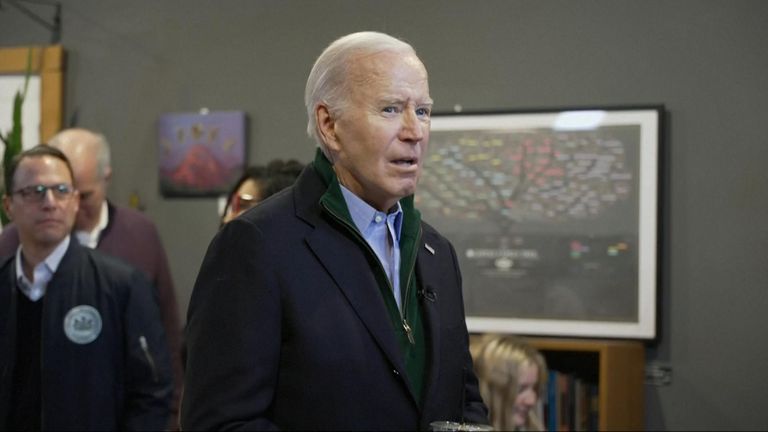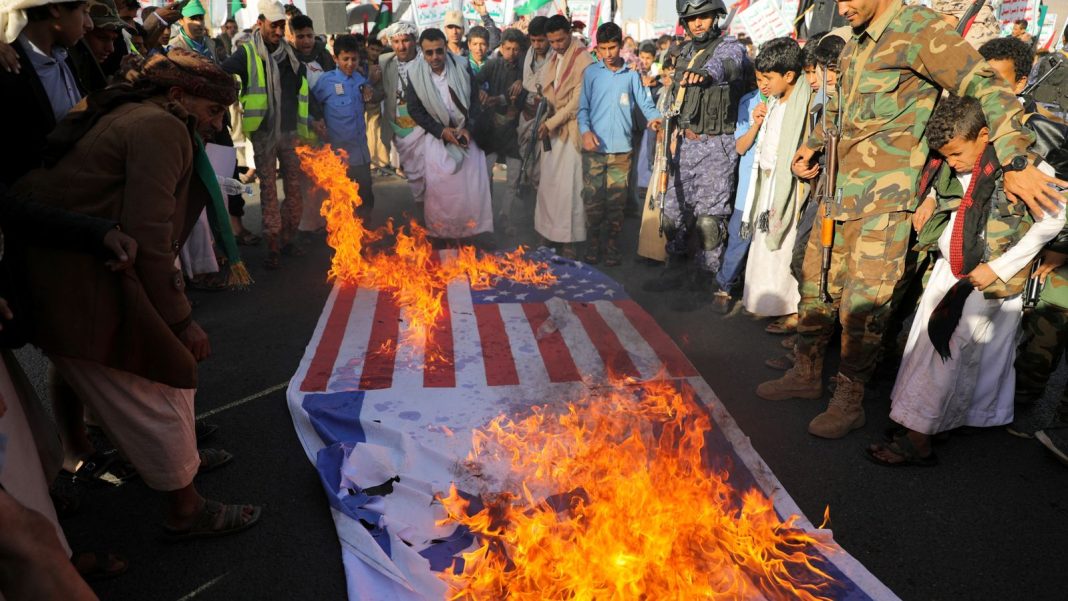The language being used by Biden administration is interesting.
“Iran is a primary – if not the primary – enabler or supporter, sponsor of the Houthis and Iran has been involved operationally in the conduct of these attacks,” a Biden administration official said.
They don’t talk about Iran directing the attacks against shipping or US military in the region in the way that they might have done not long ago.
They talk about Iran being the “enabler” rather than the puppet master. And that’s because they know that the “Iranian proxies” in the Middle East are no longer puppets.
Hezbollah in Lebanon, the Houthis in Yemen, and Hamas in Gaza – all are established forces making strategic decisions, aligned with Iranian ideology of course and with Iranian-made weapons, but driven by their own ambitions.
The way in which Israel has chosen to conduct its retaliation for the 7 October attacks – with more than 20,000 Gazans dead in three months – has given these growing regional non-state powers new focus and an old cause refreshed to rally around.
It’s unifying too for groups known to compete and squabble.
The Houthis have claimed their attacks on shipping are in solidarity with the Palestinian cause.
Protests against Western strikes in Yemen
They frame it as an international shipping lane-based protest against what they call a genocide.
Of course, the Houthis have their own internal ambitions and punching western noses plays into that.
Please use Chrome browser for a more accessible video player

1:54
Houthis vow ‘punishment’ for attacks
But make no mistake, among regional populations, the Houthis are seen, not insignificantly, as having chosen to back support for Gaza with material action.
America and the UK chose military action to try to stop the Houthi missiles. They chose to bomb the world’s poorest nation with precision bombs. That’s risky and optically awkward, to say the least.
Another course would have been to seek to remove the Houthi pretext by accelerating efforts to end the Gaza conflict and solve the Israel-Palestine question. But that’s hardly likely quickly.
Read more:
How the US and UK launched Houthi strikes
Iran says attacks on Yemen ‘a clear violation of the country’s sovereignty’
The Americans have shown an unwillingness or inability to influence Israeli actions in Gaza.
And for that, they have not just lost credibility among regional leaders. America has lost populations in the Middle East these last few months.
In recent weeks, senior regional diplomats in the Middle East have told Sky News that the longer the conflict in Gaza continues and spillover intensifies, the less possible it becomes to contain.
Please use Chrome browser for a more accessible video player

0:27
Strike on Houthi targets ‘was a success’
And crucially, they say that while Iran doesn’t seek to escalate all this into a regional war, it cannot mitigate for potential miscalculation in Lebanon, Yemen or Iraq because the groups operating there are more and more independent.
If miscalculation leads to conflict, Iran won’t seek to stop it because it would quickly become existential for them.







